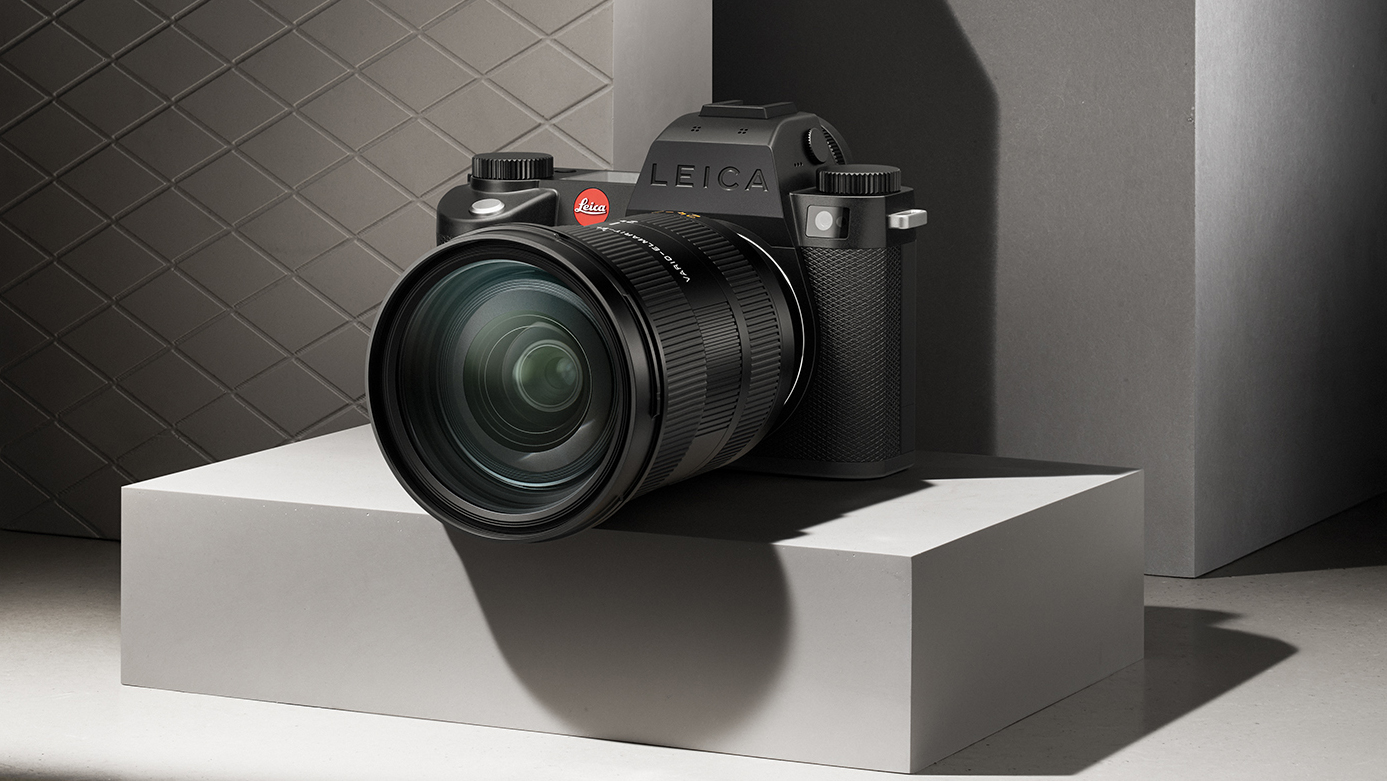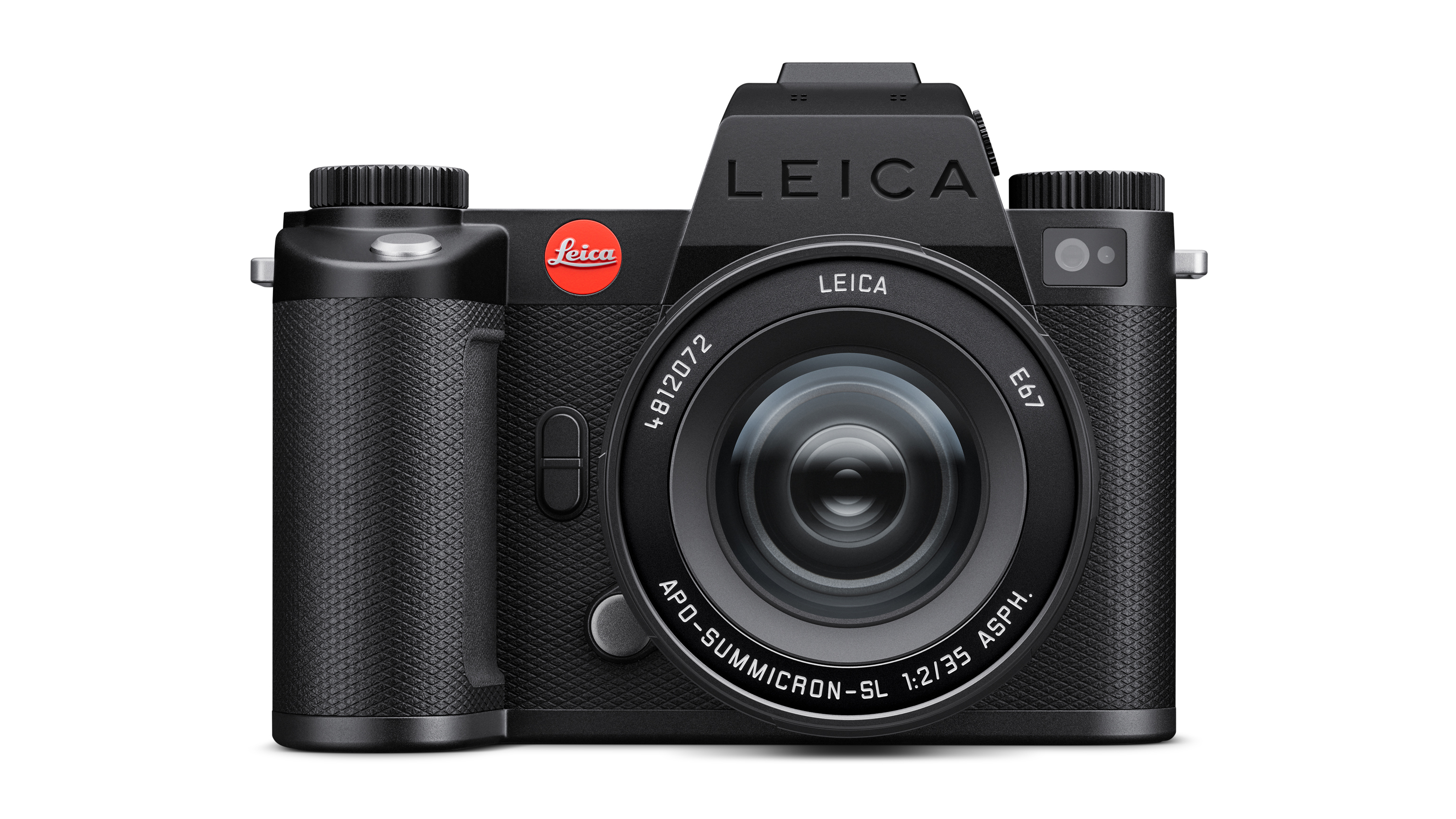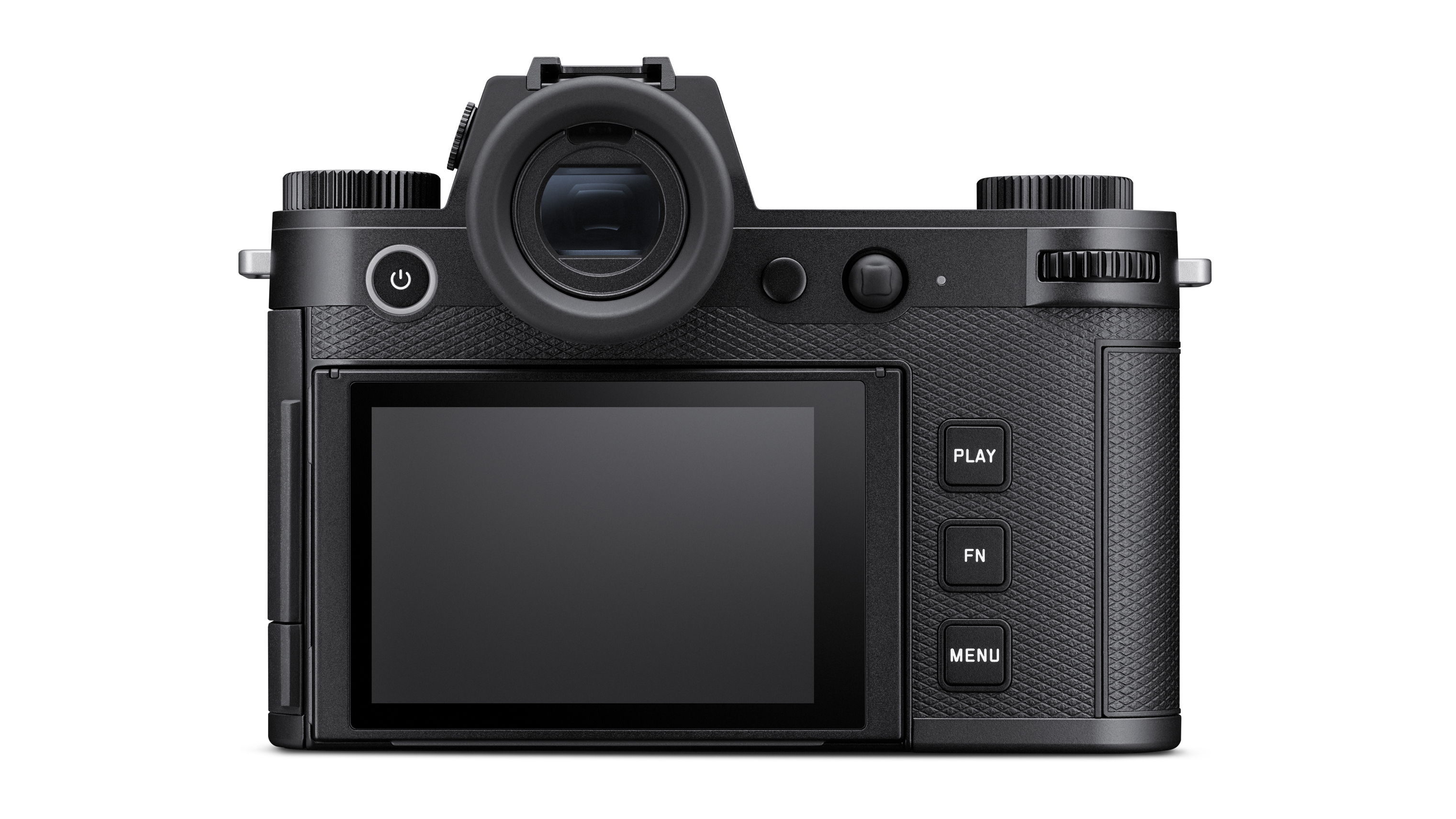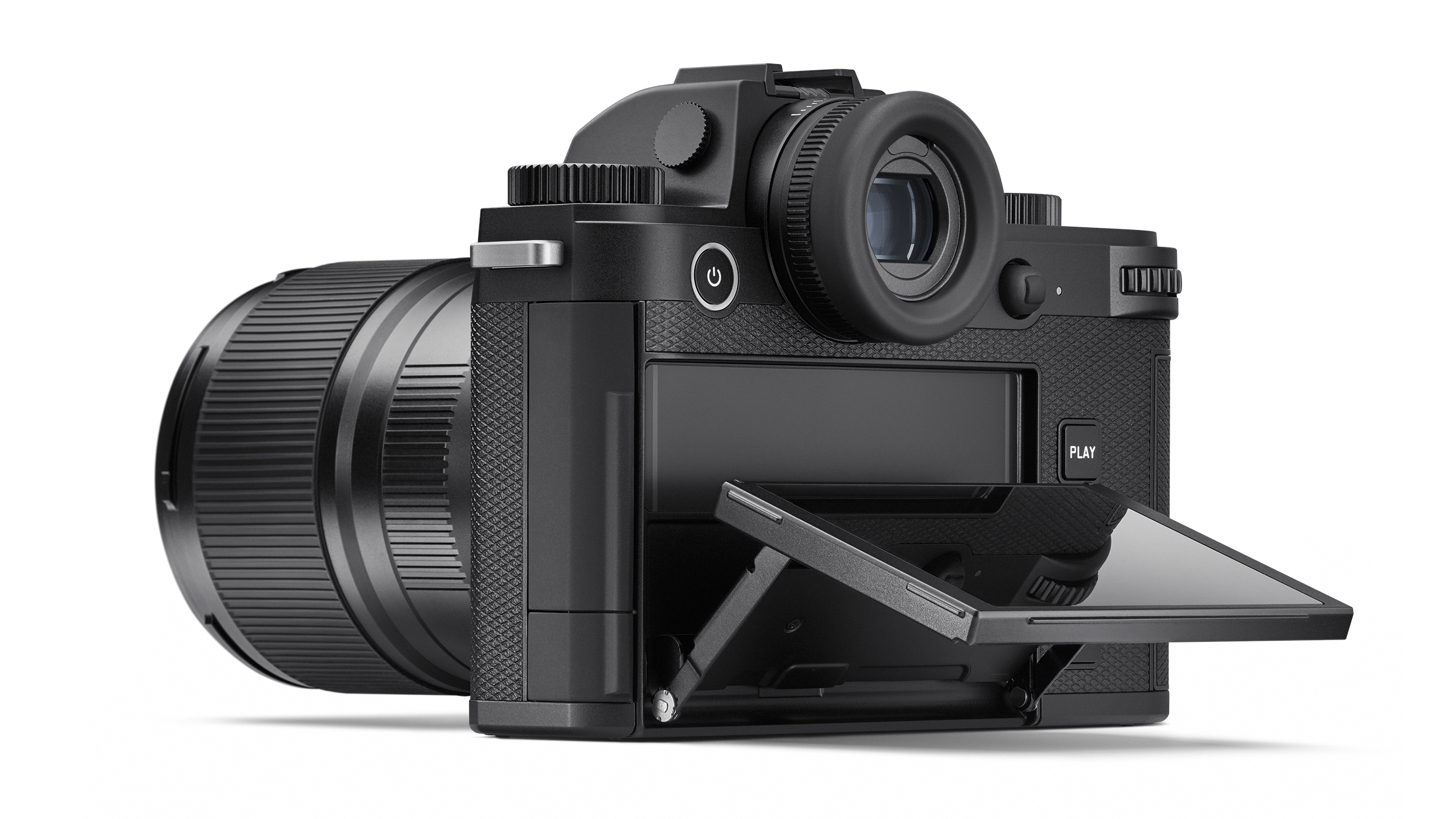
Leica has announced its latest mirrorless camera, which is officially "the fastest Leica system camera ever built".
The full frame Leica SL3-S the sister model to last year's resolution powerhouse, the Leica SL3. But where its bigger brother is all about the muscle, the Leica SL3-S is a more refined camera that doubles down on speed.
The SL3-S boasts a brand new, back-side illuminated (BSI) CMOS sensor. Its native resolution is 24.6MP, but it can produce 48MP and 96MP photographs via the magic of pixel shift multi-shot.
The BSI construction gives the sensor an enviable sensitivity range of ISO50-200,000, with a dual base ISO (50-560 and 640-200,000). It also inherits Leica's triple-tech autofocus system from the SL3, combining phase detection, contrast detection and object mapping.
Perhaps most exciting of all, the SL3-S features a super-fast continuous shooting speed of 30fps – and unlike its big brother, it can shoot at this burst rate with full autofocus support.
In terms of video capture, the Leica SL3-S can record in up to 6K and also packs open gate video – the much-coveted ability to shoot with the full sensor area, for maximium flexibility to crop to multiple aspect ratios after the fact.
Adopting a split CFexpress B / UHS-II SD card setup, the faster format can record internal 5.8K 30p in ProRes 4:2:2 HQ with no recording limits. External video monitors can record at 5.9K 30p, and the SL3-S can also directly record to an external SSD.



Deja vu…
If most of those specs look familiar, it's because they are largely identical to those found in the Panasonic Lumix S5 IIX – continuing the longstanding technology-sharing partnership between Leica and Panasonic.
Of course, the S5 IIX has been universally praised as one of the best hybrid cameras you can buy right now – and it is widely considered to be the best camera for video, so the fact that the Leica SL3-S takes cues from it is no bad thing (and no surprise, either, as the Leica SL2-S was modeled after the Panasonic Lumix S1).
It should be said, however, that the SL3-S has a number of advantages over the S5 IIX. First of all, the sensor; while Leica's is marginally higher resolution, at 24.6MP rather than 24.2MP, its BSI construction makes it a vastly improved low light performer – its ISO50-200,000 capability far exceeding the ISO50-100,000 of the Lumix.
Both the electronic viewfinder and rear LCD screen are also much higher resolution on the Leica. The EVF packs 5.76 million dots (with up to 120fps refresh rate) and the LCD 2.33 million dots on a 3.2-inch screen, compared to the 3.68 million and 1.84 million 3-inch affairs on the Lumix.
Leica SL3-S vs Leica SL3
If you're wondering how the new Leica SL3-S compares to the existing SL3, in short it is a lower resolution offering (24.6MP vs 60.3MP) with much faster burst speeds (30fps with full AF vs 15fps without AF).
And while the SL3 offers 8K 30p video, the SL3-S is a far more versatile video device – and is probably the one to go for if hybrid shooting is your thing.
Otherwise, everything else is essentially identical – both cameras are the same in size, with the SL3-S being ever-so-slightly lighter in weight by 1g, they're both weather-sealed to IP54 certification, they have the same EVF and LCD screen, the same memory card slots, image processor…
Here's a quick comparison table of the key specs that differ:
The Leica SL3-S is on sale now, carrying a price tag of $5,295 / £4,500 (Australian pricing to follow). Our full review of the camera will follow soon!
You might also like…
Check out my full Leica SL3 review to see my thoughts on the SL3-S' older sibling, and see what my colleague Jon Devo had to say in his Panasonic Lumix S5 IIX review. Make sure to take a look at the best Leica cameras and the best Leica SL lenses for its mirrorless system.
.jpg?w=600)






